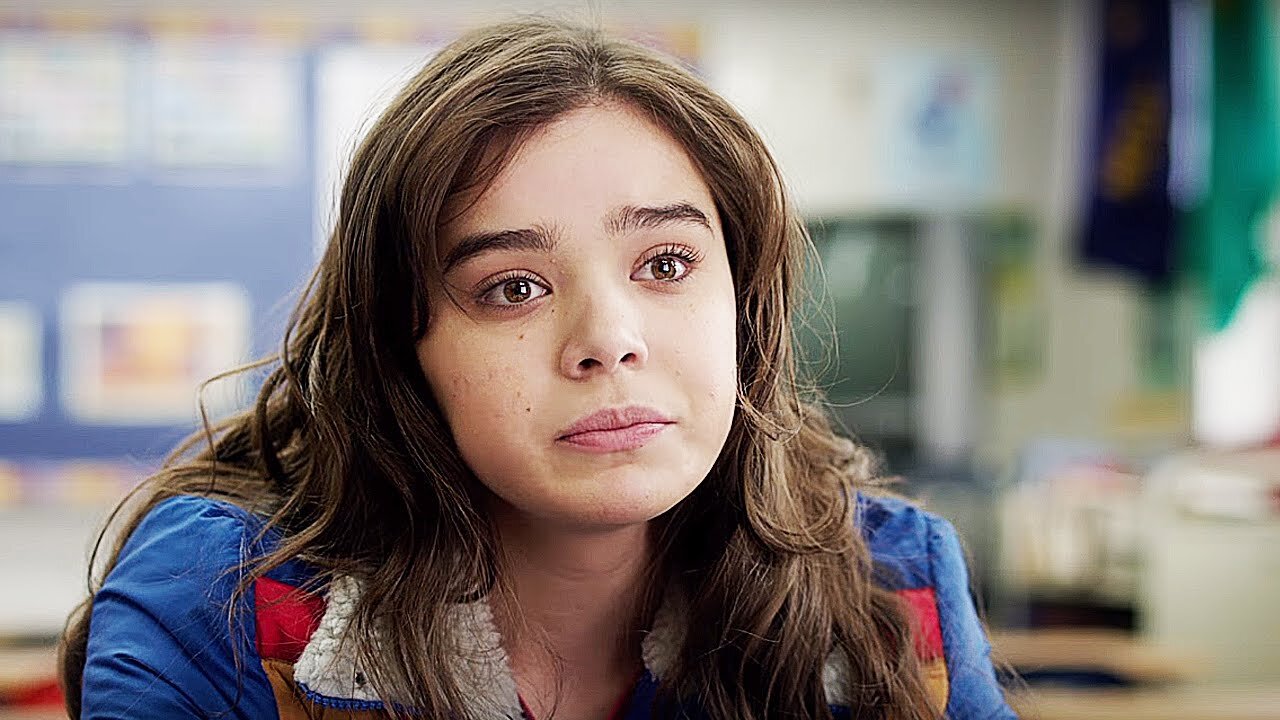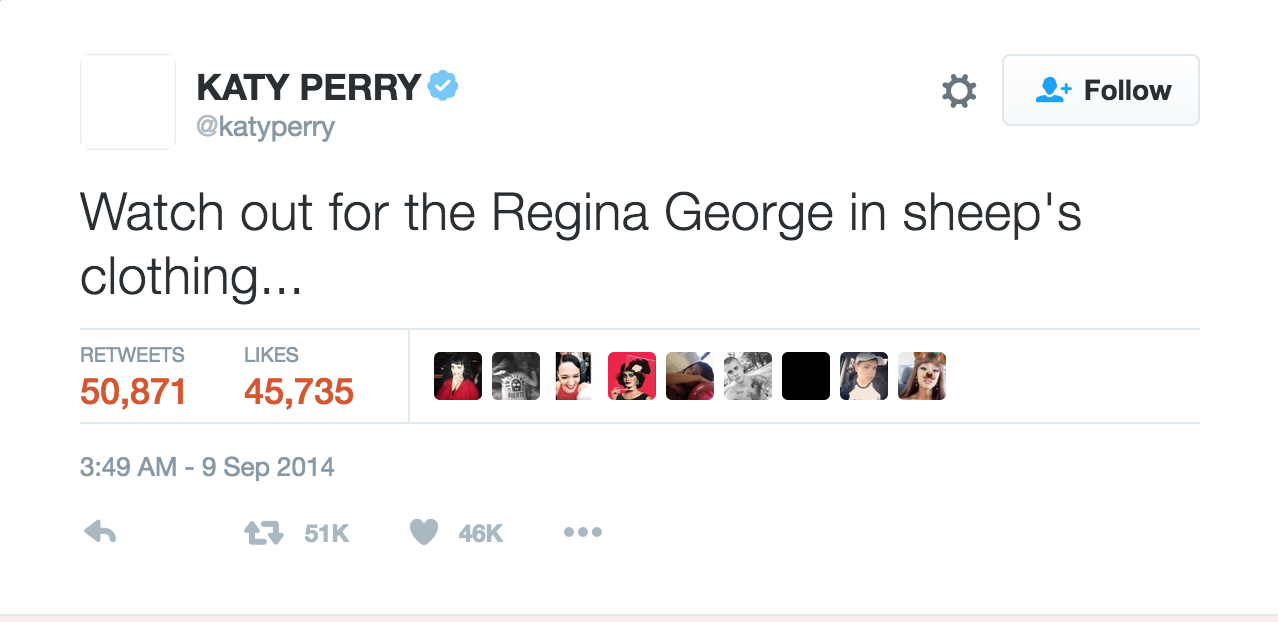The Edge of Seventeen and the Awkward Making of a Modern Star
Hailee Steinfeld, the young star of the new coming-of-age film The Edge of Seventeen, has finally arrived. Her big moment has been a long time coming. At just 19, the young actress and singer has already spent much of her short career waiting on the sidelines.
Steinfeld made a big splash with her film debut in the Coen Brothers’ 2010 True Gritremake, as tough-beyond-her-years farm girl Mattie Ross. Chosen by the Coens from a pool of over 15,000 applicants for the key role alongside Jeff Bridges, the then 13-year-old went on to win much critical attention and even nab a Best Supporting Actress nomination at the 83rd Academy Awards that year. Since then, Steinfeld has managed to transform her sudden childhood success into a steady acting career, with supporting roles in films like the hit 2015 musical comedy Pitch Perfect 2. She’s also managed to avoid the career trajectory of similar overnight successes like Nikki Blonsky from the movie Hairspray,” doomed to a fate of obscurity.
hey it's nikki blonsky from the movie hairspray! pic.twitter.com/Ddm1h8dKoW — popculturediedin2009 (@pcd2009) January 13, 2016
But being a successful, working actress is not the same as being a star. For all of Steinfeld’s success since True Grit in 2010, her career has been massively outpaced by the other breakout success of the Oscars that year--Jennifer Lawrence, nominated that year for Best Actress for her role in Winter’s Bone. Following the Oscars, the two were reportedly frontrunners for the role of Katniss Everdeen in The Hunger Games franchise. Lawrence obviously landed the role, and has since become arguably the most prominent actress of her generation. But more importantly, Lawrence has become one of the biggest superstars of the social media era. Through her appearances on red carpets, award shows, and late night television, Lawrence has shrewdly constructed a movie star persona fit for her times--accessible, brash, self-deprecating, and eminently gif-ready.
Steinfeld has also been defined under the shadow of another colossal superstar, as part of pop superstar Taylor Swift’s ‘girl squad.’ Steinfeld is an early member of Swift’s ‘squad’--the seemingly endless gang of actresses, models, athletes, and other young, conventionally attractive friends that Swift brought out throughout her world-conquering 1989 promotion cycle throughout 2014 and 2015. The ‘squad’ was a smart strategic move for all parties involved, providing Swift with a more down-to-earth image while bringing more exposure to her less famous friends. But it’s clear exactly who holds the power in this celebrity dynamic. That much can be seen--where else?--on Hailee Steinfeld’s Instagram.
Swift is the underdog-turned-popular kid, using her music and publicity machine to right wrongs and name names on the biggest, most public stage imaginable. Steinfeld would be more of a Janis: the sharp-tongued outsider who’s mature beyond her years.
Steinfeld’s attempts at following these established paths to modern stardom have not been so successful. Unlike Jennifer Lawrence, Steinfeld doesn’t have a big blockbuster franchise like The Hunger Games or an iconic character like Katniss Everdeen to her name. The 2013 science fiction film Ender’s Game, which could have done that for Steinfeld, ended up being one of the biggest flops of that year. Steinfeld’s attempt at following Taylor Swift into pop stardom as a singer also hasn’t been a good fit. Steinfeld is a strong singer with powerful stage presence, but unlike her mega-famous pop star friend, she doesn’t yet have an established persona to work with. Her 2015 debut single, ‘Love Myself,’ is almost brazen in how much it cuts against the pop machine. An ode to what might euphemistically be called female self-pleasure, ‘Love Myself’ makes its sexually evocative central metaphor all too clear. This might have been an interesting choice to flesh out an artist several singles deep into her career, but it’s a strange way to introduce a new artist. Unfortunately, though, we don’t get too many insights into Steinfeld as a musical artist outside of ‘Love Myself’; her output since hasn’t been quite so distinctive.
The Edge of Seventeen, thankfully, might finally let Steinfeld be a star. The Edge of Seventeen is one of the best teen comedies in recent memory, and Steinfeld capably takes up the challenge of making it all work.
Steinfeld absolutely commands the screen as Nadine, an acerbic high school junior whose insults only superficially mask her deep insecurity. It’s a brilliant showcase for Steinfeld, now fully realized in her talents. With her performance, Nadine becomes a complex, empathetic young woman, even in her most insufferable moments. Despite the more salacious aspects of Nadine’s circumstances in the film, she becomes ultimately just like any other 17 year old: bratty, reckless, self-absorbed, awkward, misunderstood, overconfident yet deeply insecure.
Nadine has a lot on her mind in The Edge of Seventeen. She feels misunderstood by her mother Mona (Kyra Sedgwick), a well-meaning single mother trying her best, but who can’t help but pick at Nadine’s insecurities. It doesn’t help that her brother Darian (Blake Jenner) is everything that she’s not but wants to be: confident, popular, and athletic. Things only escalate when Darian starts hooking up with Nadine’s best and only friend Krista (Haley Lu Richardson), who seems to be slowly drifting away from her. Nadine also can’t help but be awkward around her heartthrob crush Nick (Alexander Calvert). High school is tough for everyone, but Nadine’s only outlet is to lash out—loudly, at everyone, all the time, regardless of the circumstances. At the very least, though, Nadine finds a kindred spirit in her history teacher Mr. Bruner (Woody Harrelson), possibly the only person who can match her in insults.
But by the end of Nadine’s journey, there’s a light at the end of the tunnel; all teenagers grow up eventually, even if it’s a slow and tortured process. Steinfeld’s performance goes a long way in making this specific journey seem universal, including all of the stumbles and challenging moments that come along the way. Steinfeld, like Nadine, is an outsider: imperfect, sometimes difficult, but still deeply empathetic. Hopefully, she gets a lot more work like this film. Hailee Steinfeld may not be the “Girl on Fire," but she’s becoming a pretty great actress, and maybe soon, a major star.





